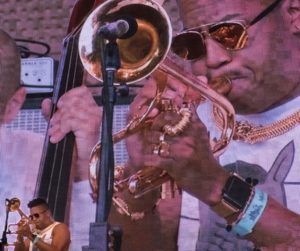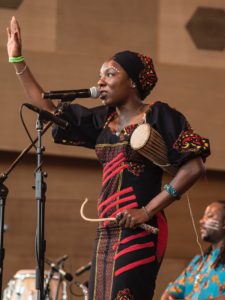My DownBeat overview of the 38th annual Chicago Jazz Festival, comprehensive as I could make it, didn’t go into depth on any of the couple dozen performances I heard from Sept 1 through 4 in downtown Millennium Park and the Cultural Center. So here, with imagery by my photojournalist colleagues and friends Marc PoKempner and Michael Jackson (whose photo […]
Chicago’s free summer music cornucopia – Deutsch, PoKempner photos
With a 10th annual Latin Jazz festival produced in the neighborhood Humboldt Park by the Jazz Institute of Chicago and dynamite downtown concerts with headliners such as Nigerian juju star King Sunny Adé and Afro-Cuban progressive Eddie Palmieri put on by DCASE, the city’s Department of Cultural Affairs and Special Events, Chicago’s free summer music programs […]
Branford Marsalis and Kurt Elling in New Orleans, ready for recording
Saxophonist Branford Marsalis’s quartet and singer Kurt Elling prepared for their upcoming recording in a rare four-night stand at Snug Harbor in New Orleans last week, and photo-journalist extraordinaire Marc PoKempner went each night, enthralled. “It was sort of an open rehearsal for the recording, so the set list was the same every night,” PoKempner reported […]



